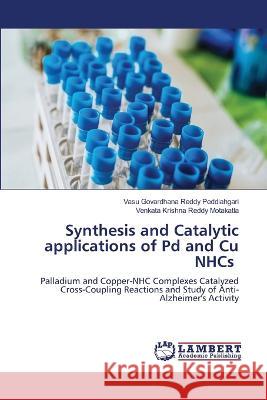Synthesis and Catalytic applications of Pd and Cu NHCs » książka
Synthesis and Catalytic applications of Pd and Cu NHCs
ISBN-13: 9786206146971 / Angielski / Miękka / 200 str.
Catalytic processes are highly essential for the sustainable development of organic mimics and thus symbolize the more economical impact. Therefore, study of these methodologies is of immense interest. To develop new chemistry, there is very much need of designing and synthesizing unexisting catalysts with various substituents for effective methodologies. As discussed above, metal-NHC complexes (palladium and copper-NHCs) are novel class of universal nucleophilic complexes capable of promoting different organic modifications. Recently, these have come into light as most successful class of catalysts in organometallic chemistry. Magnificent complexes have been finding tremendous applications in the field of catalysis viz., C-H activation, C-C, C-O and C-N bond formations etc. Since last two decades, these complexes have gained a terrific impact on organocatalysis. In the past few years, a great deal of literature showed benzimidazolium NHCs as more stable complexes displaying wonderful reactivity and sensing properties for good catalytic properties. Hence, this area stimulated us to prepare new benzimidazole bearing Pd(II)-PEPPSI and Cu(I)-NHC complexes for cross-coupling reactions.











